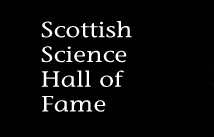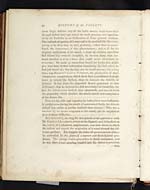James Hutton (1726-1797)
Biographical account of the late Dr James Hutton, FRS, Edinburgh
40
HISTORY of the SOCIETY.
them singly dissolve any of the baser metals, must unite their
strength before they can attack the most precious, was mention-
ed by the Professor as an illustration of some general doctrine.
The instinct of genius, if I may call it so, enabled Mr HUTTON,
young as he then was, to feel, probably, rather than to under-
stand, the importance of this phenomenon; and as if, by the
original constitution of his mind, a kind of elective attraction
had drawn him towards chemistry, he became from that mo-
ment attached to it by a force that could never afterwards be
overcome. He made an immediate search for books that might
give him some farther instruction concerning the fact which he
had just heard of; but the only one he could procure, for a long
time, was HARRIS’s Lexicon Tecbniaim, the predecessor of those
voluminous compilations which have since contributed so much
more to extend the surface, than to increase the solidity of
science. It was from the imperfect sketch contained in that
dictionary, that he derived his first knowledge of chemistry, his
love for which never forsook him afterwards, and was in truth
the propensity which decided the whole course and complexion
of his future life.
THOUGH his taste and capacity for instruction were sufficient-
ly conspicuous during his course of academical study, his friends
wished him rather to pursue business than science. This was a
measure by no means congenial to his mind, yet he acquiesced
in it without difficulty.
ACCORDINGLY, in 1743 he was placed as an apprentice with
Mr GEORGE CHALMERS, writer to the Signet; and subjection to
the routine of a laborious employment, was now about to check
the ardour and repress the originality of a mind formed for dif-
ferent pursuits. But happily the force of genius cannot always
be controlled by the plans of a narrow and short-sighted pru-
dence. The young man’s propensity to study continued, and
he was often found amusing himself and his fellow apprentices
with


